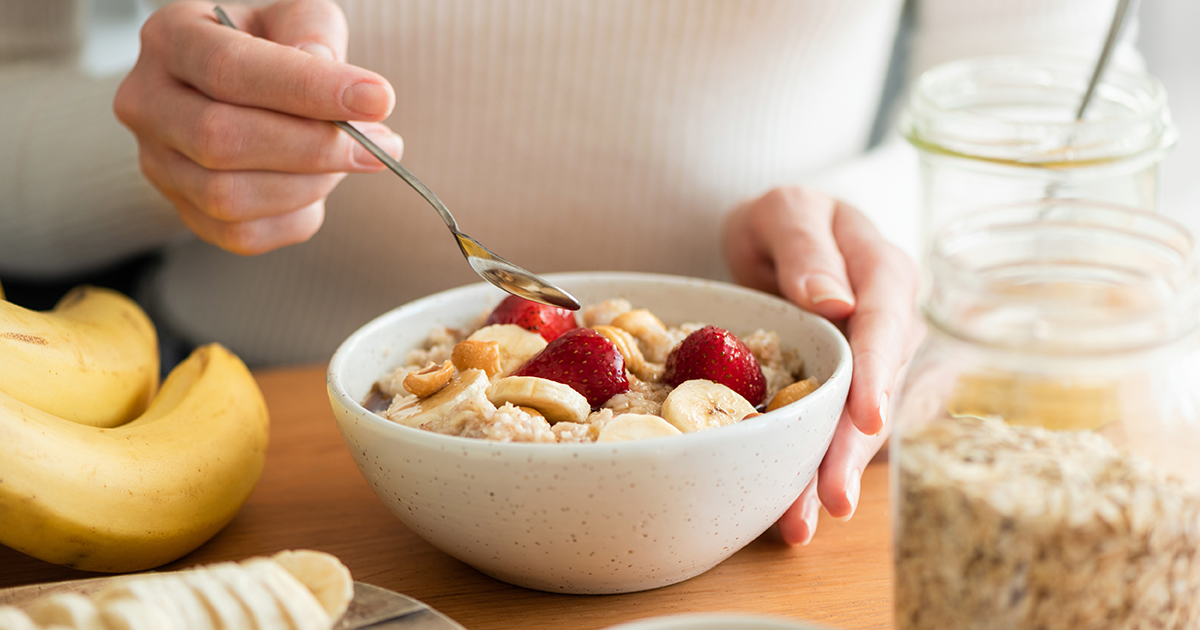The Benefits of Breakfast: A Comprehensive Guide
Breakfast is often referred to as the most important meal of the day, and for good reason. It provides us with the necessary fuel to kickstart our day and sets the tone for our overall health and well-being. In this article, we will explore the numerous benefits of breakfast and why it is crucial to prioritize this meal in our daily routine.
Boosts Energy Levels
Starting your day with a nutritious breakfast can significantly boost your energy levels. After a night of fasting, our bodies need fuel to function optimally. By consuming a well-balanced breakfast, we provide our bodies with the necessary nutrients, such as carbohydrates, proteins, and healthy fats, to power through the day.
Enhances Cognitive Function
Breakfast plays a vital role in enhancing cognitive function, especially in children and adolescents. Research has shown that individuals who eat breakfast perform better in memory, attention, and problem-solving tasks. It provides the brain with glucose, which is essential for optimal brain function and concentration.
Supports Weight Management
Contrary to popular belief, skipping breakfast does not aid in weight loss. It can have the opposite effect. Eating a healthy breakfast helps regulate appetite and prevents overeating later in the day. It kickstarts your metabolism and provides the necessary energy for physical activity, thus supporting weight management efforts.
Improves Nutritional Intake
Breakfast is an excellent opportunity to incorporate essential nutrients into your diet. By choosing a variety of whole foods, such as fruits, vegetables, whole grains, and lean proteins, you can ensure a well-rounded nutritional intake. This helps meet your daily requirements for vitamins, minerals, and other important nutrients.
Promotes Heart Health
Research suggests that individuals who regularly consume a healthy breakfast have a lower risk of developing heart disease and related conditions. A balanced breakfast can help regulate cholesterol levels and blood pressure, and reduce the risk of obesity and type 2 diabetes, all of which contribute to overall heart health.
Enhances Mood and Well-being
Starting your day with a nourishing breakfast can have a positive impact on your mood and overall well-being. It helps stabilize blood sugar levels, preventing mood swings and irritability. Additionally, breakfast provides an opportunity to enjoy a peaceful moment before the hustle and bustle of the day, promoting a sense of calm and mindfulness.
Fuels Physical Performance
For individuals engaging in physical activity, breakfast is crucial for optimal performance. It provides the necessary carbohydrates for energy and protein for muscle repair and growth. A well-fueled body can endure longer and more intense workouts, leading to improved athletic performance and better results.
Sets a Healthy Example
By prioritizing breakfast, you set a healthy example for others, especially children. Research shows that children who regularly eat breakfast are more likely to maintain a healthy weight, perform better academically, and have improved overall nutrition. By instilling this healthy habit, you contribute to the well-being of your family and community.

In conclusion, breakfast offers numerous benefits that contribute to overall health and well-being. By making it a priority in your daily routine and choosing nutritious options, you can boost energy levels, enhance cognitive function, support weight management, improve nutritional intake, promote heart health, enhance mood and well-being, fuel physical performance, and set a healthy example. So, start your day right and enjoy the benefits of a wholesome breakfast!
Frequently Asked Questions about the Benefits of Breakfast
1. Why is breakfast considered the most important meal of the day?
Breakfast provides the necessary fuel and nutrients to jumpstart your metabolism and give you energy for the day ahead.
2. What are the physical benefits of eating breakfast?
Eating breakfast can help maintain a healthy weight, improve concentration and focus, and reduce the risk of chronic diseases like diabetes and heart disease.
3. Does eating breakfast help with weight management?
Yes, having a balanced breakfast can help control hunger throughout the day, preventing overeating and aiding in weight loss or maintenance.
4. Can skipping breakfast have negative effects on my health?
Skipping breakfast can lead to low energy levels, poor concentration, and increased cravings for unhealthy foods later in the day. It may also negatively impact metabolism and overall health in the long run.
5. What are some quick and healthy breakfast options?
Some examples of quick and healthy breakfast options include oatmeal with fruits, Greek yogurt with nuts and honey, whole-grain toast with avocado, or a smoothie with spinach and berries.
6. Is it necessary to eat breakfast if I’m not hungry in the morning?
While it’s ideal to have breakfast within a few hours of waking up, it’s important to listen to your body. If you’re not hungry in the morning, try having a light snack or a smaller portion to still benefit from the nutrients.
7. Can eating breakfast improve my cognitive function?
Yes, studies have shown that eating breakfast can enhance memory, attention span, and overall cognitive performance, especially in children and adolescents.
8. How does breakfast impact my mood?
A balanced breakfast can help stabilize blood sugar levels, which in turn can improve mood, reduce irritability, and enhance overall mental well-being.
9. Can breakfast help regulate my appetite throughout the day?
Yes, a nutritious breakfast can help regulate hunger hormones, keeping you feeling satisfied and preventing excessive snacking or overeating later in the day.
10. Are there any specific nutrients that are important to include in a breakfast?
A healthy breakfast should include a mix of carbohydrates, proteins, and healthy fats. Nutrient-dense foods like whole grains, lean proteins, fruits, and vegetables are great choices for a well-rounded breakfast.




